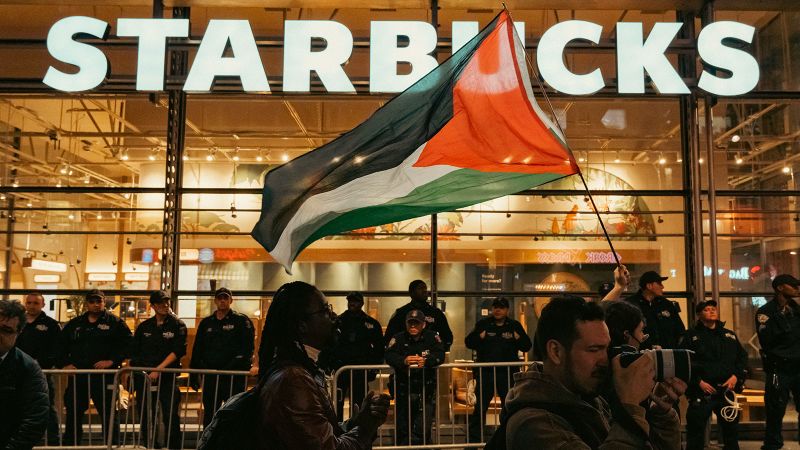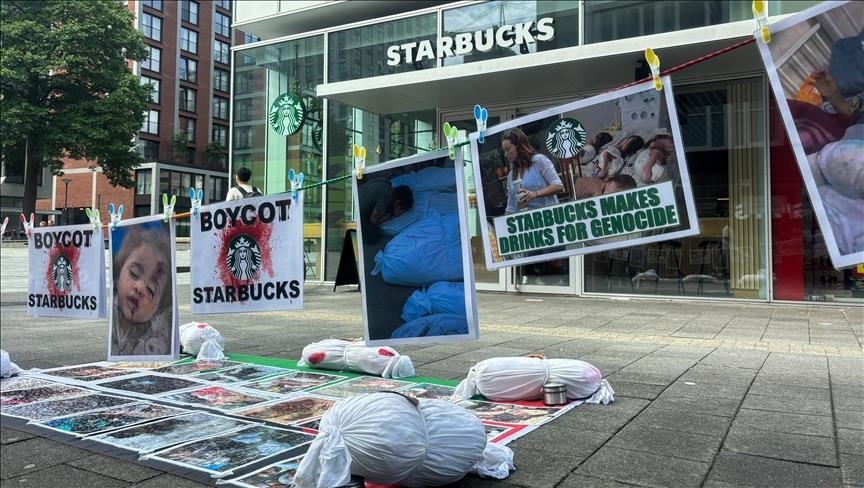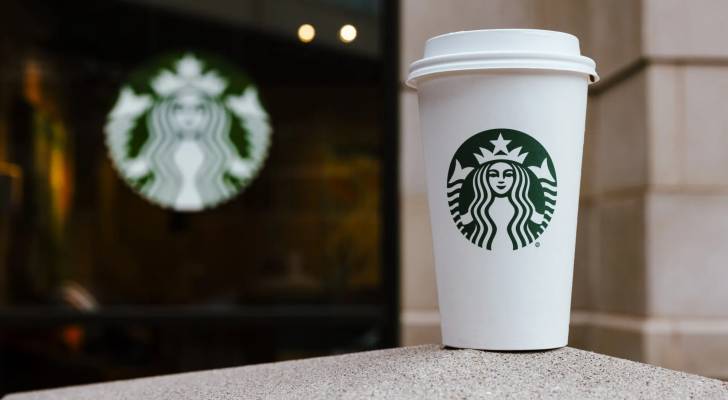Starbucks to close 400 stores across North America
Note: AI technology was used to generate this article’s audio.
- Starbucks to close 400 stores amid global boycott and $1 billion restructuring plan.
- Falling sales, high prices, and rising competition fuel the company’s decline.
Starbucks has announced plans to close around 400 stores across North America this month, as part of a major $1 billion restructuring plan. This comes amid the ongoing global boycott over the company’s alleged complicity in the Gaza genocide.
The coffee chain, once known for its rapid expansion and ubiquity in cities and suburbs, now faces a stark shift in its fortunes. The closures, which will also see 900 corporate employees laid off, represent about 1% of Starbucks’ total locations in the region.
Although the move may appear small for a company that operates more than 32,000 stores worldwide, it marks a significant moment for the brand, which has seen its reputation and revenues strained by changing consumer behavior, rising competition, and public backlash.
Shifting business landscape
Starbucks’ CEO, Brian Niccol, said the stores being closed were either underperforming or no longer aligned with customer expectations. Analysts say the closures are also linked to long-term shifts in consumer habits, including a move away from urban centers following the COVID-19 pandemic.
“Starbucks’ turnaround has been made more challenging by ongoing macroeconomic uncertainty and the rapid expansion of drive-thru-focused competitors,” said RJ Hottovy, an analyst at Placer.ai.
The company is also facing growing competition from smaller independent coffee shops and newer chains which cater to younger consumers seeking more affordable or local alternatives.
Adding to its troubles, customers have become increasingly resistant to Starbucks’ rising prices. A recent UBS survey of 1,600 consumers found that over 70% cited higher prices as their main reason for visiting the chain less often, particularly among households earning under $100,000 annually.
Impact of global boycott
One of the factors that also affected Starbucks’ sales is the ongoing global boycott against the company over its complicity in the 'Israeli' war on Gaza.
The boycott, which gained traction across multiple regions, has led many consumers to avoid the brand as part of a wider movement targeting companies supporting 'Israel'.
Over the past two years, the campaign has significantly hurt Starbucks’ reputation, particularly in the Middle East and parts of Europe, where protests and online calls for boycotts have become widespread.
The movement has also spread to North America, where younger, socially conscious consumers have been vocal about aligning their spending habits with their political values.
Despite the company’s attempts to distance itself from the controversy, the damage to its image has been substantial, adding another layer of difficulty to its broader business struggles amid rising competition and changing market dynamics.


A long-awaited turnaround
Niccol, who took over as Starbucks CEO in September 2024, has initiated a series of changes to restore Starbucks’ original identity as a “third place”, meaning a comfortable space between home and work.
Under his leadership, Starbucks has reintroduced several old traditions, such as baristas drawing on cups and self-serve milk and sugar stations. The company has also trimmed 30% of its food and drink menu, ended its open-bathroom policy for non-paying customers, and launched plans to renovate 1,000 US stores over the next year to create more welcoming spaces for customers.
However, internal frustrations persist. Some employees have complained that new menu items and branding efforts - such as doodling on cups - have added pressure during peak hours.
Despite the challenges, industry analysts remain cautiously optimistic. “We acknowledge the turnaround has taken longer than we expected, now likely moving into early-to-mid 2026,” said BTIG analyst Peter Saleh. “But once these initiatives take hold, the impact will be significant.”
While Starbucks plans to open new stores next year, the current closures underscore the growing impact of global boycotts and public backlash over its alleged complicity in the Gaza genocide, which have compounded the company’s financial and reputational challenges.




